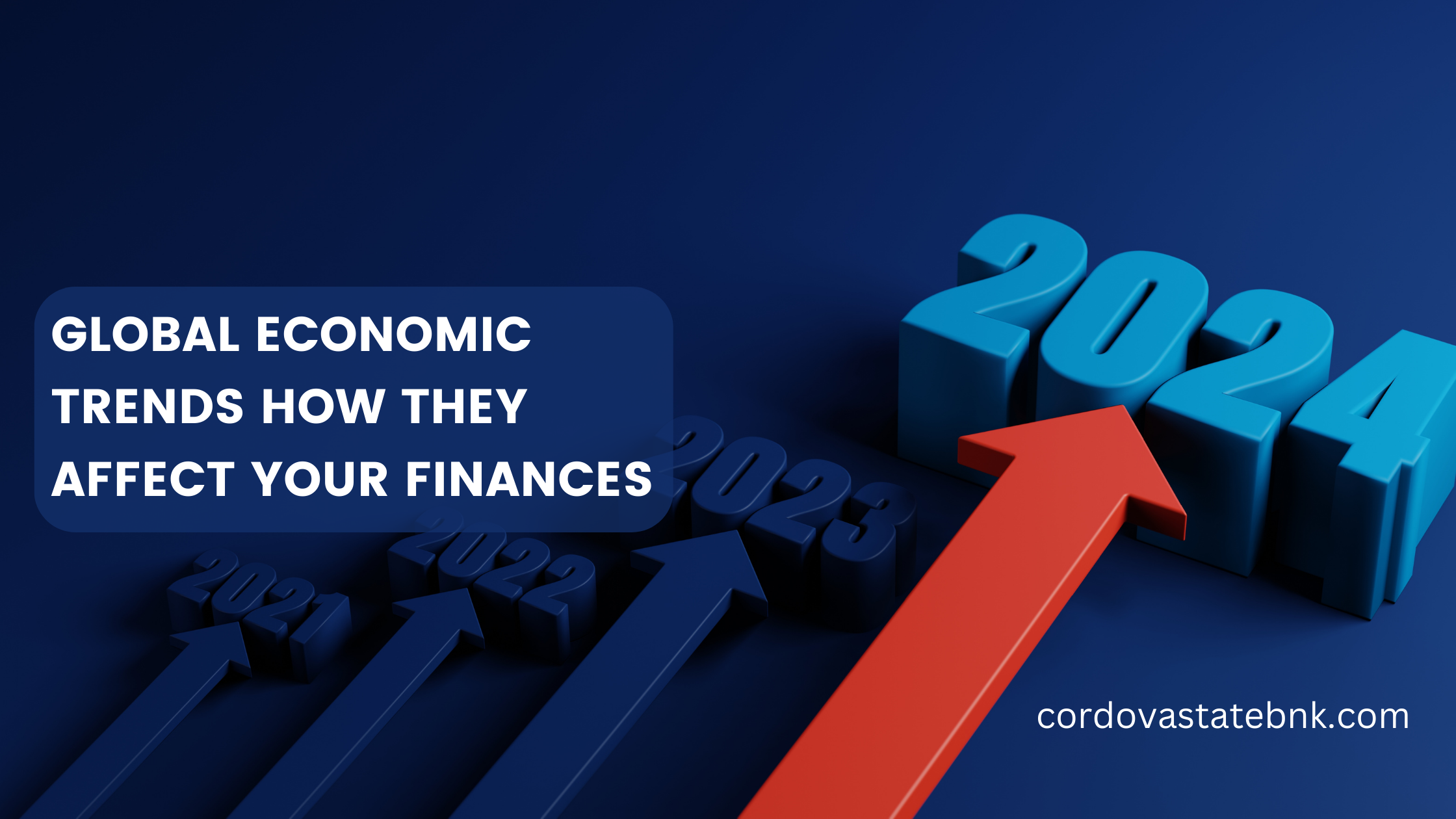In our interconnected world, global economic trends have a ripple effect that reaches into our finances. This exploration delves into the impact of key trends, such as inflation and interest rates, on individual financial well-being. Additionally, it discusses strategies for adapting to economic changes, and protecting assets, and sheds light on how geopolitical events can influence the broader financial landscape.
Impact of Global Economic Trends on Personal Finances
1. Inflation:
- Deeper Insight: Inflation is the rate at which the general level of prices for goods and services is rising. A moderate level of inflation is considered healthy for economic growth. However, high inflation can erode purchasing power over time.
- Personal Finance Consideration: To combat the impact of inflation, investors may allocate a portion of their portfolio to inflation-protected securities, like Treasury Inflation-Protected Securities (TIPS), which adjust with inflation.
2. Interest Rates:
- Deeper Insight: Central banks use interest rates to control inflation and influence economic growth. Lower interest rates generally stimulate borrowing and spending, while higher rates can cool down an overheated economy.
- Personal Finance Consideration: Individuals with variable-rate loans, like adjustable-rate mortgages, may experience changes in their monthly payments when interest rates fluctuate.
3. Exchange Rates:
- Deeper Insight: Exchange rates determine the value of one currency in terms of another. Movements in exchange rates can impact the cost of imported goods and affect international investments.
- Personal Finance Consideration: Currency risk is a consideration for investors with international holdings. Changes in exchange rates can impact the returns of foreign investments when converted back into the home currency.
4. Commodity Prices:
- Deeper Insight: Commodity prices, such as oil, impact the cost of goods and services. They are influenced by factors like supply and demand dynamics, geopolitical events, and economic indicators.
- Personal Finance Consideration: Consumers may experience changes in prices for everyday items, such as fuel and groceries, based on fluctuations in commodity prices.
Strategies for Adapting to Economic Changes
1. Diversification:
- Deeper Insight: Diversification involves spreading investments across different asset classes, such as stocks, bonds, and real estate. This strategy aims to reduce risk and enhance overall portfolio stability.
- Rationale: During economic downturns in specific industries, a diversified portfolio is less likely to be severely impacted.
2. Emergency Fund:
- Deeper Insight: An emergency fund is a savings account set aside to cover unexpected expenses or financial emergencies, providing a financial safety net.
- Rationale: In times of economic uncertainty, having an emergency fund ensures individuals can cover essential expenses without relying on credit or selling investments.
3. Flexible Budgeting:
- Deeper Insight: Flexible budgeting involves regularly reviewing and adjusting spending habits based on changes in income or economic conditions.
- Rationale: Adapting spending to align with current economic circumstances ensures financial stability and avoids unnecessary debt.
4. Interest Rate Awareness:
- Deeper Insight: Being aware of interest rate movements allows individuals to make informed decisions regarding borrowing and refinancing.
- Rationale: Refinancing high-interest debt during periods of lower interest rates can result in cost savings for borrowers.
Geopolitical Events and the Financial Landscape

1. Trade Relations:
- Deeper Insight: Trade tensions between nations can lead to tariff impositions and impact global supply chains, affecting industries and economies.
- Financial Landscape Influence: Investors may experience increased market volatility as uncertainty about trade agreements prevails.
2. Political Stability:
- Deeper Insight: Political stability fosters economic confidence, while political instability can lead to uncertainty and affect investor sentiment.
- Financial Landscape Influence: Financial markets may react to political developments, with increased volatility during periods of political uncertainty.
3. Global Crises:
- Deeper Insight: Global crises, such as pandemics or natural disasters, can have profound economic consequences, disrupting various sectors and affecting financial markets.
- Financial Landscape Influence: During a global crisis, markets may experience heightened volatility, prompting investors to reassess risk exposure and adjust portfolios.
In conclusion, a nuanced understanding of global economic trends and their implications on personal finances allows individuals to navigate economic shifts more effectively. By implementing adaptive strategies, staying informed about geopolitical events, and maintaining a resilient financial plan, individuals can mitigate risks and capitalize on opportunities arising from the dynamic nature of the global economy.


Leave A Comment